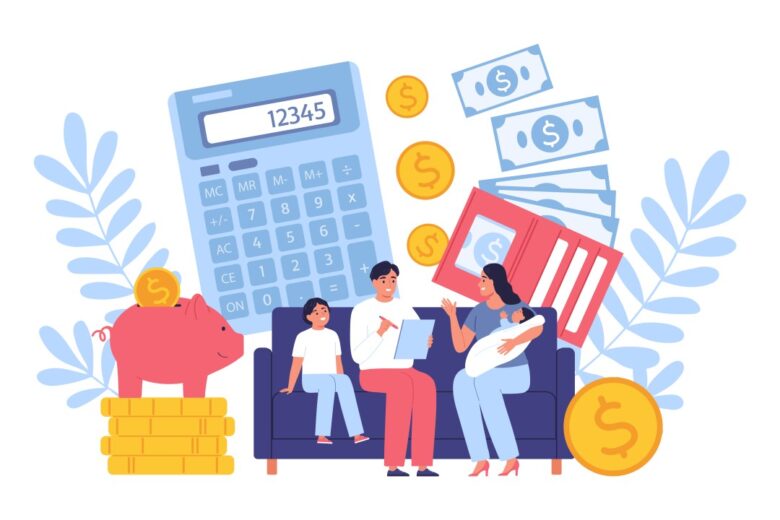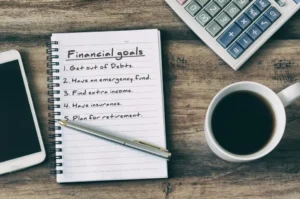Why Budgeting Matters More Than You Think
A monthly budget is more than a spreadsheet—it’s a plan for how you’ll use your money to achieve what matters most. Whether you’re trying to get out of debt, save for a big goal, or just stop living paycheck to paycheck, a working budget puts you in control. Many people give up on budgeting because it feels restrictive or hard to maintain, but with the right approach, your budget can become a helpful financial guide, not a burden. The key is making it realistic, flexible, and tailored to your lifestyle.
Know Your Exact Income
The first step in building a monthly budget that works is knowing how much money you have coming in. This includes more than just your paycheck—any side hustle income, rental earnings, freelance work, or regular cash inflows should be counted. Use your net income (what you take home after taxes and deductions) as the base number for your budget. If your income varies from month to month, use an average of your last three to six months to get a realistic estimate.
Track and Categorize Your Expenses
Before you can build a budget, you need to know where your money is currently going. Track your spending for a month—manually, with a spreadsheet, or using budgeting apps—to categorize every expense. Group them into fixed expenses (like rent or mortgage, insurance, subscriptions) and variable expenses (like groceries, transportation, entertainment, and dining out). Don’t forget to include occasional expenses like birthdays, holidays, or medical visits. Understanding your spending habits clearly is enlightening and serves as the basis for a practical budget.
Define Your Financial Priorities
A good budget reflects your values. After reviewing your spending, please consider whether it aligns with your goals. Are you spending a lot on things that don’t matter to you? Are you saving enough for emergencies or future goals? List your financial priorities—maybe it’s building an emergency fund, saving for a trip, paying off credit cards, or investing for retirement. Ranking your goals gives your budget a purpose and helps you make smarter choices with your money.
Choose a Budgeting Method That Fits Your Style
There are many ways to budget, and no one method works for everyone. Choose one that fits your lifestyle and preferences. The 50/30/20 method is a popular option: 50% of income goes to needs, 30% to wants, and 20% to savings or debt. The zero-based budget is another method where every dollar is assigned a job, meaning income minus expenses equals zero. Some people prefer the envelope method, where you use physical or digital envelopes to control spending in different categories. The best budget is the one you can stick to, not the one that looks best on paper.
Build a Spending Plan Based on Real Numbers
Now it’s time to create your actual monthly budget. List your total income at the top, then subtract your expenses, starting with essentials—rent, utilities, food, transportation, debt payments. Next, include your savings goals, and finally, your discretionary spending like entertainment, hobbies, or dining out. Don’t forget irregular expenses like quarterly bills or annual renewals—divide those by 12 and save a portion each month. Please ensure your income accommodates all expenses, and if it does not, kindly adjust your variable expenses to achieve a balanced budget.
Automate What You Can
One of the secrets to successful budgeting is automation. Set up automatic transfers to savings or investment accounts right after payday. Schedule auto-pay for fixed bills to avoid late fees. Automation helps you stay consistent without relying on willpower alone. Paying yourself first—before you have a chance to spend—is a proven way to stay on track with your financial goals.
Use Tools to Monitor and Stay Accountable
Whether you love spreadsheets or prefer mobile apps, tracking your progress helps keep your budget working month after month. Use budgeting tools like Mint, YNAB (You Need A Budget), or even a simple Google Sheet to log expenses, track balances, and compare actual spending with planned spending. Review your budget weekly to stay aware and make small adjustments when needed. Seeing your progress in real time keeps you motivated and reinforces healthy money habits.
Expect and Embrace Imperfection
No budget is perfect, especially in the beginning. Life is unpredictable, and there will be surprise expenses or slip-ups. The key is not to give up when things go off track. Please review your budget, make adjustments for the new situation, and continue moving forward. Building financial habits takes time. A budget should be flexible enough to evolve with your needs—not a rigid set of rules that make you feel guilty. Treat budgeting as a skill you develop, not something you must master immediately.
Reassess and Adjust Monthly
A successful budget isn’t a one-time task—it’s an ongoing practice. At the end of each month, review what worked and what didn’t. Did you overspend in one category but underspend in another? Were your goals realistic? Use what you learn to improve next month’s budget. Your budget should change as your life changes—new income, new goals, or unexpected events all require adjustments. Being proactive instead of reactive keeps your finances stable and prevents stress.
Celebrate Your Progress and Stay Motivated
Budgeting isn’t just about cutting back—it’s about creating the life you want. Celebrate small wins like hitting your savings target, paying down debt, or staying within your grocery budget. Reward yourself in meaningful, budget-friendly ways. These celebrations keep you motivated and make budgeting a positive experience rather than a chore. When you connect budgeting with real progress toward your goals, you’re more likely to stay consistent and enthusiastic.
Conclusion: Make Your Budget Work for You
Building a monthly budget around your real income, values, and goals ensures its effectiveness. It’s not about restriction—it’s about intentional living. With clear priorities, realistic planning, and a bit of discipline, you can transform your financial future one month at a time. The more you practice, the easier the process becomes, and eventually, budgeting becomes a natural habit. Most importantly, it empowers you to make confident decisions and build a life of financial stability and freedom.




